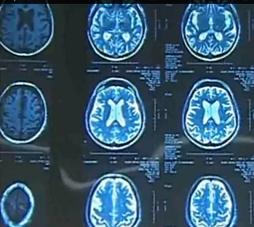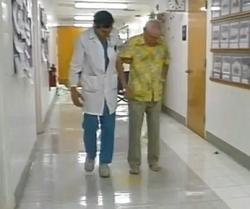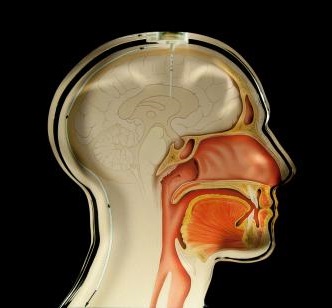- Home
- Better Memory
- Normal Pressure Hydrocephalus
Misdiagnosed as Alzheimer's, Normal Pressure Hydrocephalus Is Treatable
A little-known condition called Normal Pressure Hydrocephalus (NPH) mimics symptoms of Alzheimer's and Parkinson's diseases. Unlike most forms of dementia, NPH is reversible, often with dramatic, immediate results.
Patients stuck in a wheelchair for years literally get up and walk. They go back to work, they hold conversations again, they play golf. They get their lives back.
A diagnosis of Alzheimer's is devastating to patient and family. But sometimes that diagnosis is wrong, and the true cause of dementia is treatable.
Normal Pressure Hydrocephalus is one such condition. Tragically, thousands of people are incorrectly diagnosed with Alzheimer's disease, Parkinson's, or other conditions when they actually have NPH.
Check out the following short video for a typical story of how treating NPH can less or eliminate the symptoms and restore quality of life. Note the three cardinal symptoms of NPH mentioned by the doctor: 1) incontinence (bladder problems; 2) balance problems; and 3) memory problems.
By some estimates, 375,000 people in the U.S. have NPH, but only a small fraction are diagnosed. Instead, misdiagnosed with Alzheimer's or Parkinson's, they are needlessly condemned to lives in a wheelchair or nursing home with little or no quality of life.
What is Normal Pressure Hydrocephalus?
Normal Pressure Hydrocephalus occurs when too much cerebrospinal fluid accumulates in ventricle spaces in the brain. This can occur through unknown causes, or may result from head trauma or brain surgery.

Because the fluid builds up slowly over time, NPH is usually seen in older individuals. This, along with NPH's classic triad of symptoms - problems with balance, memory, and urination - explain why it is confused with Alzheimer's or Parkinson's disease.
Unlike other forms of hydrocephalus, in NPH pressure in the brain reaches an equilibrium. The person does not experience typical symptoms of hydrocephalus such as migraine headache or nausea, even though the amount of fluid in their brain is too high.
Their Alzheimer-like symptoms occur because the fluid is pressing on nearby brain structures that affect memory, walking, and incontinence. As a result, people with NPH and other forms of hydrocephalus are sometimes described as "wet, wobbly, and wacky". Treatment is to drain excess fluid to relieve pressure on the brain.
Treatment Can Lead to Dramatic Results
Bob Fowler was so sure he was dying that he wrote his own obituary. As Bob put it,
I was totally convinced I was dying. I was totally convinced because I had been to doctor after doctor after doctor with absolutely no positive results.
For nine years, Bob increasingly suffered with trouble walking, memory problems, and difficulty controlling his urination. Eventually, he had to stop working and for years was confined to a wheelchair. His wife began making plans to put him in a nursing home.
Bob had to sleep in a chair, because he felt he was suffocating or drowning when lying down. Worse of all, he had developed a severe case of dementia.
Finally he encountered a doctor who recognized that Bob had Normal Pressure Hydrocephalus. After his surgery, Bob literally got up and resumed his life. The change was dramatic.
I never anticipated feeling that good again in my life. And all of a sudden I felt fantastic. I'm 74 years old now, and I'm doing things I wouldn't have dreamed of doing anytime during my 60's.
He's went back to work, started playing golf, driving his car, and spending time with his family. Rather than facing years of decline in a nursing home, Bob has his life back.
Why Is NPH Misdiagnosed?
Many people with NPH are misdiagnosed with Alzheimer's disease or Parkinson's disease. Those diseases have no cure, so the person is condemned to a path of deterioration often leading to commitment in a nursing home, loss of quality of life, and eventual death from the disease.

Doctors tend to miss the diagnosis of NPH because symptoms are similar to Alzheimer's and Parkinson's. With an older individual suffering from dementia, it is natural to suspect Alzheimer's disease, because millions of people do actually have that condition.
Similarly, the shuffling, magnetic walk seen in Normal Pressure Hydrocephalus looks similar to the gait of Parkinson's patients. Parkinson's, too, is a condition that does affect many.
It can also be time consuming and expensive to diagnose NPH. The doctor needs to listen carefully to the patient's history and observe them closely. An MRI or CT scan, which can cost several thousand dollars, is often needed to visualize the ventricles in the brain to see whether the brain spaces might be expanded beyond the norm.
Forthese reasons, it is not surprising that NPH is often missed. But because NPH is treatable, patients and family members may want to insist on a careful evaluation to determine whether the symptoms actually indicate NPH.
According to one study, about 10% of current nursing home residents with Alzheimer's actually have Normal Pressure Hydrocephalus. In cases where their NPH may be treatable. this is clearly a tragedy.
NPH Dementia and Other Symptoms Can Be Reversed
Retired dentist Milton Newman suffered 15 years with loss of concentration and memory. He even had a CT scan, but doctors couldn't pinpoint the problem. His wife remembers watching her once-vibrant husband slip away. Milton's symptoms started when he was about 55 years old.
My concentration was nil, there wasn't any. Reading a book was difficult because I couldn't remember what happened 10 pages back. And later on, conversation was difficult because I'd forget what people would say.
Eventually Milton got a diagnosis of Alzheimer's,
And I was floored by that, because it was a death sentence.
But it was all a mistake, and there was hope. After years of suffering, he met a doctor at the Barrow Neurological Institute in Phoenix who realized he had NPH. Quite simply, all his problems were caused by extra fluid that was putting pressure on his brain.
The surgery was a success, and his symptoms lessened immediately. Milton said, "I came out of it fantastic. I felt like the old Milton. Right away."
How is NPH Diagnosed and Treated?
Diagnosis of NPH is usually accomplished through MRI and/or CT scan plus a case history and observation of symptoms. This is sometimes followed by draining a small amount of cerebrospinal fluid to determine if relieving fluid pressure improves symptoms.

Cerebral Pressure Monitoring Sensor
© Patrick J. Lynch / Fraunhofer IMS
Image used by permission
Treatment of Normal Pressure Hydrocephalus involves surgically inserting a shunt (tube) under the skin to drain away the fluid.
This shunt is inserted in the brain and under the skin leading to the stomach. This allows extra fluid to drain to the belly where it can be absorbed.
The shunt typically doesn't bother the patient. When Milt Newman was asked whether he could feel his shunt, he replied, "Not at all."
The amount of fluid being drained may need to be adjusted periodically. With modern hydrocephalus shunts, cerebral fluid level can be measured with a magnetic hand-held meter in the doctor's office quickly and painlessly. The fluid level can then be adjusted by setting the valve on the shunt system from the outside.
Success of NPH treatment depends on many factors, including how high the pressure had become, how long the person had symptoms, which brain structures were affected by the pressure, and so on.
Only qualified physicians can diagnose NPH, but the fact NPH is treatable suggests it may be wise to seek multiple opinions when a diagnosis of Alzheimer's or Parkinson's is given. If the person actually has Normal Pressure Hydrocephalus, as was the case with Bob Fowler and Milt Newman, a correct diagnosis and treatment can be life changing.
Contribute to the NPH Conversation
If you have thoughts or insights about Normal Pressure Hydrocephalus, feel free to post a Facebook Comment below. If you or a loved one has been treated for NPH, please share your experience on the Memory Problems Story section of this website.
Do what you can to spread the word about NPH, a tragic yet treatable condition.
Published: 04/22/2014
Last Updated: 06/11/2020

Newest / Popular
Multiplayer
Board Games
Card & Tile
Concentration
Math / Memory
Puzzles A-M
Puzzles N-Z
Time Mgmt
Word Games
- Retro Flash -
Also:
Bubble Pop
• Solitaire
• Tetris
Checkers
• Mahjong Tiles
•Typing
No sign-up or log-in needed. Just go to a game page and start playing! ![]()
Free Printable Puzzles:
Sudoku • Crosswords • Word Search







